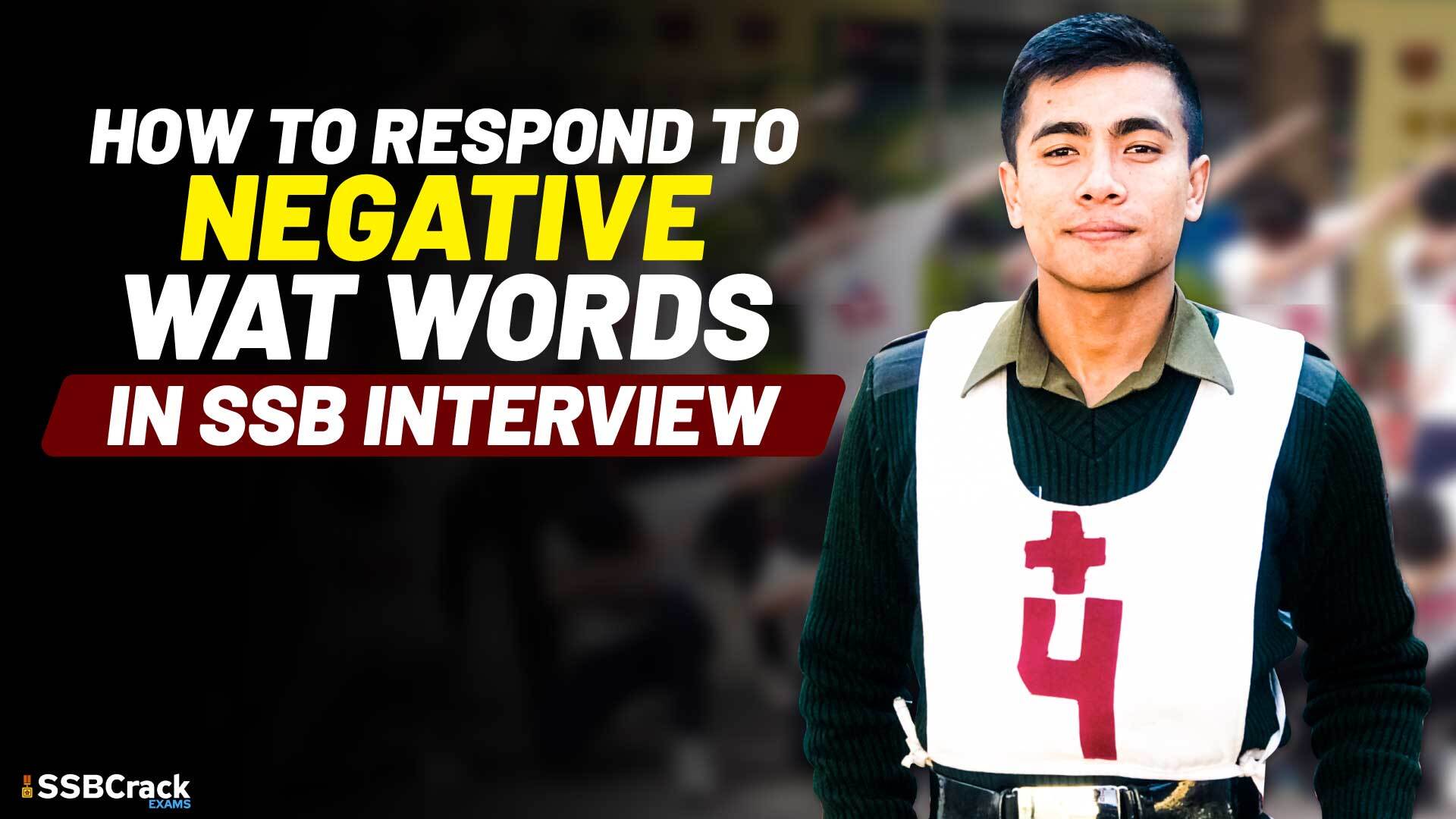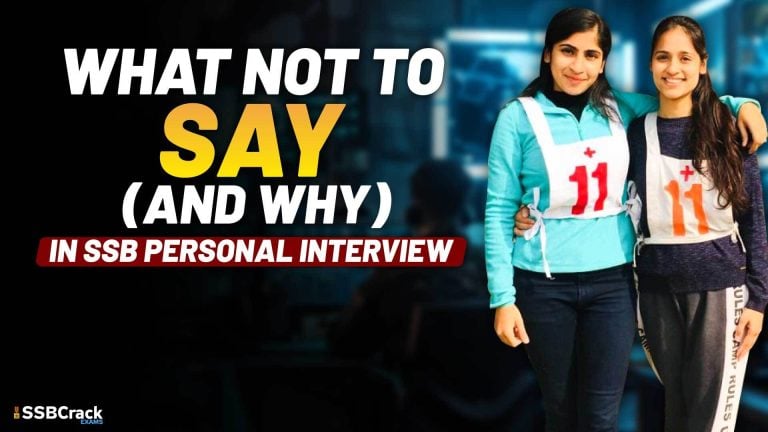Responding to negative Word Association Test (WAT) words in the Service Selection Board (SSB) interview requires a balanced approach that reflects your resilience, problem-solving skills, and a positive attitude. Here are some tips on how to respond effectively to negative WAT words:
- Maintain Positivity:
- Even when presented with negative words, strive to respond in a positive manner. Frame your answers in a way that emphasizes overcoming challenges, learning from experiences, or finding constructive solutions.
- Turn Challenges into Opportunities:
- Convert negative words into opportunities for growth or positive outcomes. For example, if given the word “failure,” respond with a word like “learning” or “improvement” to highlight the positive aspect of setbacks.
- Showcase Resilience:
- Emphasize your ability to bounce back from challenges. Use words that convey resilience, determination, and the capacity to face adversity with a strong mindset.
- Demonstrate Problem-Solving Skills:
- When faced with negative words, showcase your problem-solving skills. Use words that suggest proactive approaches to addressing challenges or finding solutions.
- Highlight Learning and Growth:
- Negative experiences often provide valuable lessons. Use words that reflect a commitment to continuous learning, personal growth, and the ability to turn setbacks into opportunities for improvement.
- Avoid Negative Language:
- Refrain from using negative or defeatist language in your responses. Instead, focus on words that project a positive and forward-looking attitude.
- Incorporate Teamwork:
- If applicable, include elements of teamwork in your responses to negative words. This highlights your ability to collaborate with others to overcome challenges and achieve shared goals.
- Acknowledge Realism:
- While maintaining a positive tone, it’s acceptable to acknowledge the realistic challenges associated with negative words. However, make sure to follow up with a positive twist or a solution-oriented approach.
- Be Concise:
- Keep your responses concise, especially in the rapid-fire format of WAT. Deliver your message clearly and avoid unnecessary elaboration.
- Balance Realism with Optimism:
- Strike a balance between acknowledging the reality of negative situations and expressing optimism about finding solutions or learning from experiences.
- Utilize Words with Positive Connotations:
- Choose words that have positive connotations even if the context is negative. For example, for the word “difficulty,” you might respond with “challenge” or “opportunity for growth.”
- Express Determination:
- Showcase your determination and commitment to overcoming obstacles. Use words that convey persistence, tenacity, and a strong will to succeed.
- Avoid Blame or Excuses:
- Steer clear of blaming others or making excuses for negative situations. Focus on your individual response and actions in the face of challenges.
- Connect to Officer-Like Qualities:
- Relate your responses to officer-like qualities such as decisiveness, responsibility, and a positive influence on others. This aligns your answers with the expectations for military officers.
- Practice Beforehand:
- Familiarize yourself with common negative words used in WAT and practice responding to them. This can help you develop a repertoire of positive and constructive answers.
Remember, the key is to demonstrate a positive and solution-oriented mindset, showcasing your ability to handle challenges effectively and contribute to a positive environment. Your responses should reflect qualities that align with the expectations of officers in the armed forces.







